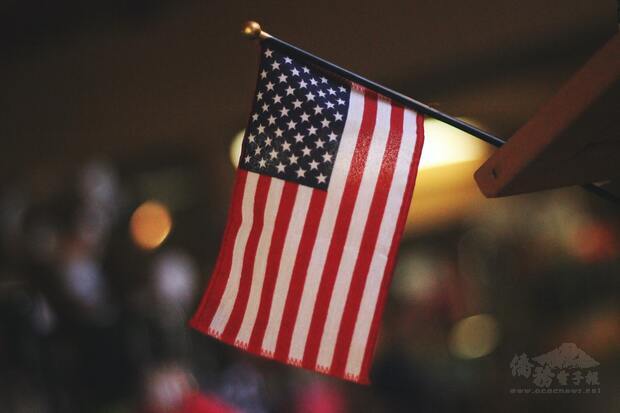
Biden and Japanese Prime Minister Yoshihide Suga held their first in-person summit since Biden took office in January, in which they reaffirmed their commitment to stability in the Taiwan Strait.
"We underscore the importance of peace and stability across the Taiwan Strait," according to a joint statement issued after the summit. It was the first time since 1969 that the joint leaders' statement has directly referenced Taiwan, even though similar wording was adopted in a joint statement after the U.S.-Japan Security Consultative Committee in Tokyo on March 16.
Kuo Yu-jen, a professor at the Institute of China and Asia-Pacific Studies at National Sun Yat-sen University, told CNA Saturday that the statement, which he considers "binding" for both the U.S. and Japan as an alliance, expressed the two countries' intention to expand their joint security efforts to the Taiwan Strait.
Kuo predicted that the U.S. will take "a more substantive approach" to the defense of Taiwan in the future and will increase its military presence in the East China Sea, South China Sea and Taiwan Strait.
According to the Taiwan Relations Act, which has served as a foundation for Taiwan-U.S. relations after the two sides cut diplomatic ties in 1979, the U.S. is bound to provide arms sales to Taiwan to help the island maintain its defense capabilities. However, the U.S. has never openly said it will deploy troops to defend Taiwan in the event of a military invasion.
However, Kuo noted, the joint statement is likely to anger Beijing, which could result in it sending more military aircraft and vessels close to Taiwan. Taiwan should also be prepared for potential confrontations between the U.S., Japan and China in the proximity of Taiwan, the professor said.
Meanwhile, Evans Chen Liang-chih, an associate research fellow with the state-run think tank, the Institute for National Defense and Security Research, said the joint statement is good news for Taiwan, but it remains to be seen how Taiwan can deepen collaboration with the U.S. and Japan on maintaining peace and stability in the Taiwan Strait.
Noting that Suga refrained from detailing what was discussed pertaining to Taiwan during the summit, Chen predicted that the two governments, together with the Taiwanese authorities, might have exchanged ideas about possible responses should military confrontations arise in the region.
The three countries, according to Chen, may have developed an understanding or even guidelines on possible actions should vessels belonging to China's Coast Guard or maritime militia come into conflict with those of Japan's Coast Guard.
China implemented its contentious Coast Guard Law on Feb. 1, which authorizes its Coast Guard vessels to use weapons when its national sovereignty, sovereign rights, or jurisdiction are deemed by the Chinese authorities to be illegally violated by a foreign organization or individual.
While the U.S.-Japan leaders' summit and the subsequent joint statement were viewed as a good sign in Taiwan, a Chinese scholar warned that Beijing's relationship with Tokyo and Washington can be further strained.
Relations between China and Japan are worsening, according to Jie Dalei, an associate professor at the School of International Studies, Peking University, on Saturday.
Bilateral relations already suffered a setback following the U.S.-Japan security talks a month ago, which also focused on the China challenges, as well as the Japanese government's recent decision to dump treated nuclear wastewater into the ocean, observed Jie.
He also told CNA that even though the U.S. and China intend to work together on combating climate change, their collaboration could be thwarted by competition and friction between the two governments in the long run.